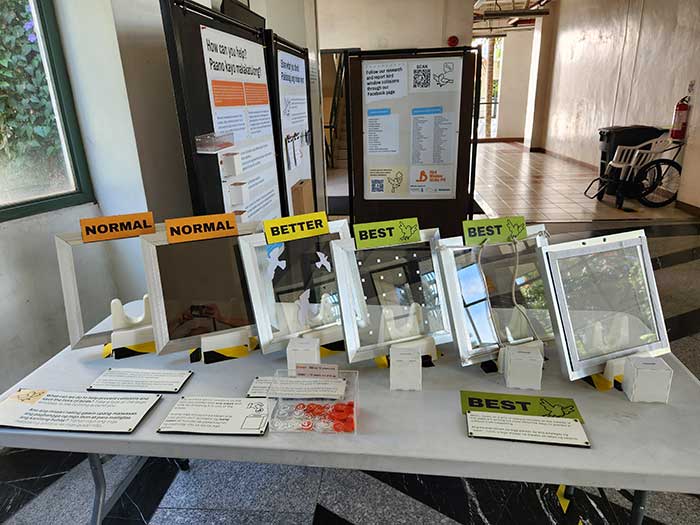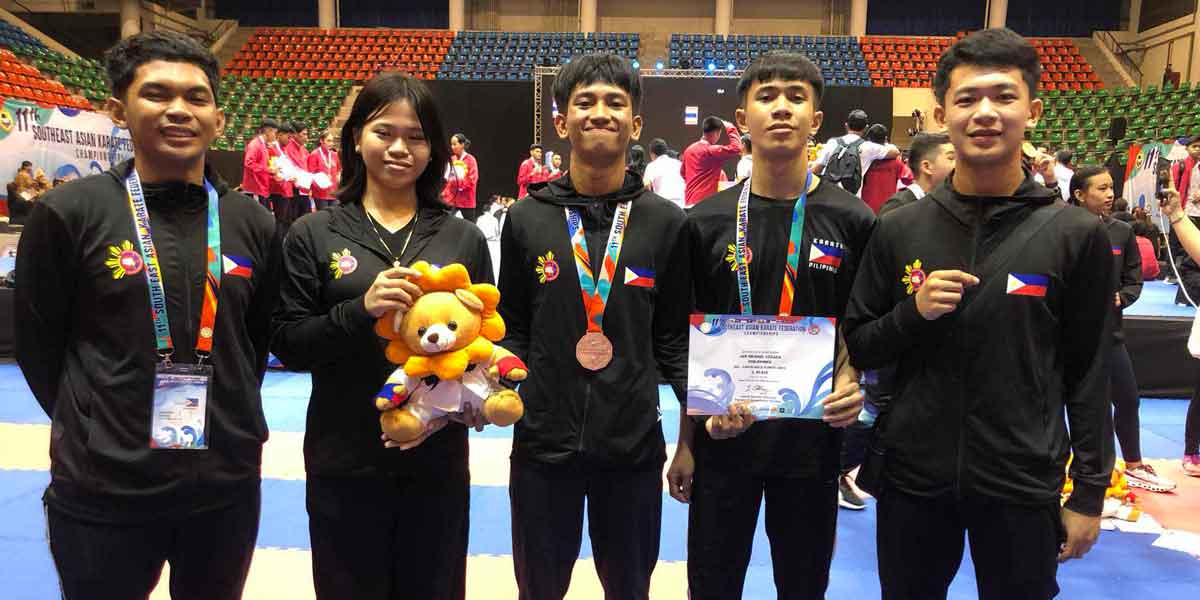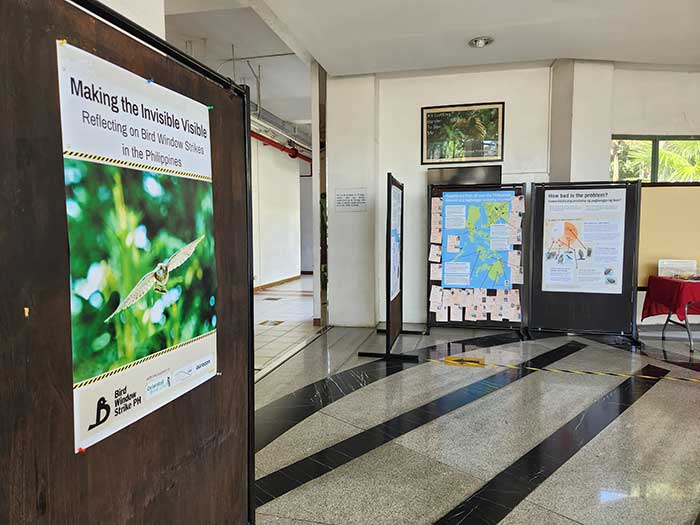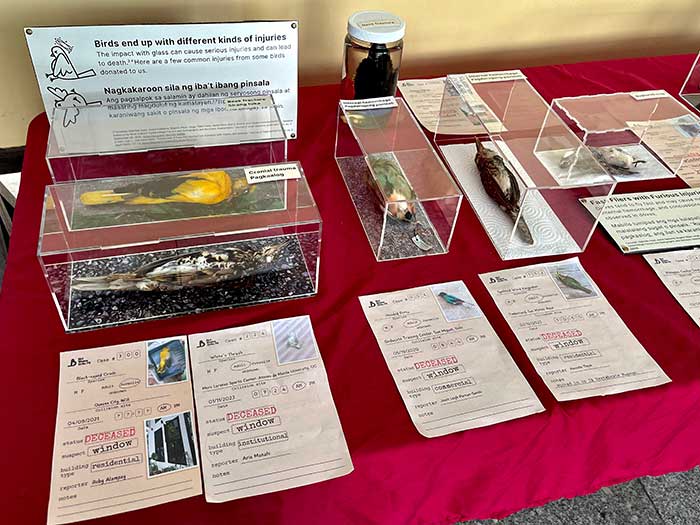By Maria Alexandra Marmol
In February 2024, the UP Diliman College of Science Institute of Biology (UPD – CS IB) housed the “Making the Invisible Visible” pop-up exhibition of the citizen science project, Bird Window Strike Philippines.
Featuring the feathered remains of unlucky birds that had collided into windows, the displays served as poignant and striking visuals for this strange, but common phenomenon. Infographics and posters provided possible solutions and detailed accounts of incidents from up to 290 citizen reports from all around the Philippines.
Bird Window Strike PH first started as a research initiative and passion project under Janina Castro of the Ateneo Institute of Sustainability, the school’s hub for sustainable development, and Jelaine Gan of The UP Wild, an online educational community raising awareness on UP Diliman’s wildlife and green spaces.
The two had long been avid bird watchers—or “birders”—when the idea formed after Janina rescued a Coppersmith Barbet that had struck a window in the Ateneo de Manila University. She realized that little to no research was being done on bird collisions with windows despite their somewhat common occurrence. Teaming up with Jelaine, the two discussed how they could bring more attention to this issue and what could be done to prevent further collisions.

Bird collisions with windows can happen when they are misled by either the reflections of trees and the sky on the glass surface or by the view of the environment through the glass. Based on studies by various researchers and the American Bird Conservancy (ABC) database, the most efficient means of prevention involved breaking up the reflection. This could be done by installing stickers at least 1 cm in size, ideally spaced around 5 cm apart. The “Making the Invisible Visible” pop-up exhibition showed other solutions, such as ropes and wire mesh screens for windows.
“[These solutions are] among the most effective, but this doesn’t mean that these are the only choices,” the Bird Window Strike PH team emphasized. “In the ABC database, there are a number of DIY solutions and commercial solutions that people can choose from.”
(The ABC database can be found here: https://abcbirds.org/glass-collisions/products-database/)
Citizens from across the country aid in raising awareness on the endangerment of various species, as the Bird Window Strike PH regularly receives incident reports and photos—some of which were part of the exhibit. Pigeons (Columbidae), kingfishers (Alcedinidae), barbets (Megalaimidae), and pittas (Pittidae) were among the most common victims of window collisions.
“In particular, we get a lot of Common Emerald Dove (Chalcophaps indica) and Hooded Pitta (Pitta sordida) in the reports,” they explained. “We don’t know why these birds seem to be colliding more, but some of the explanations in literature are related to increased blue light pollution in cities and to birds’ behavior of moving around different forest patches.”
The citizen science and conservation initiative plans to set up more pop-up exhibitions in the future. By showcasing solutions through these displays and serving as an avenue for incident reports, they hope to reach more people and encourage them to take action in preventing any further accidents.
Keep an eye out for the Bird Window Strike PH’s next exhibit and work on their FB page.






















